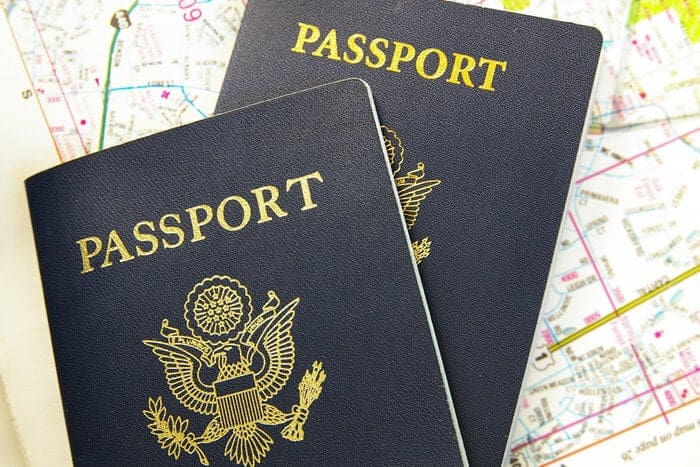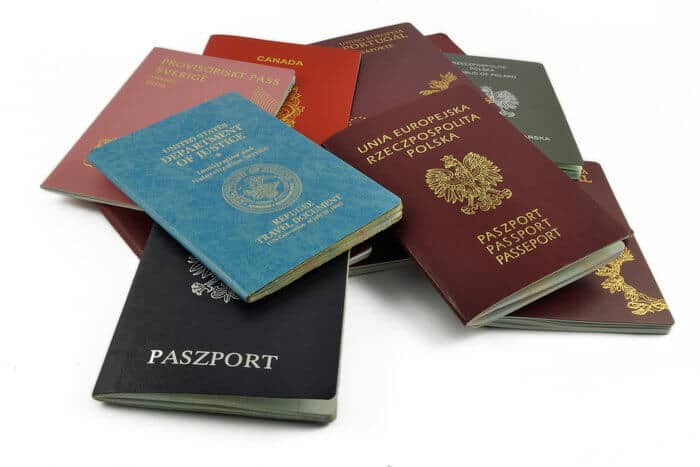The Cost to Renounce Citizenship Around the World
August 25, 2022
Dateline: Kuala Lumpur, Malaysia
I was in Langkawi, Malaysia, when the US government announced that it was going to raise the fee to renounce citizen
ship from $450 to $2,350.
I hadn’t renounced my citizenship yet at the time, and I remember thinking to myself:
“Wow, they’re making it really hard to escape.”
To be honest, I don’t blame them – US citizens are a great source of revenue.
If you’re a US citizen, you’re stuck in a system of citizenship-based taxation that forces you to pay tax on your global income – even if you haven’t lived there in years.
You can get some relief through Foreign Earned Income Exclusion and other exemptions. However, between FATCA and FBAR, the US government will try to squeeze every dime that they can out of you.
This complicated tax system is often what drives people from the US to renounce citizenship. It’s almost impossible for high earners to handle, and lower-income earners can hardly afford the cost of compliance.
And, unlike in most of the world, you can’t just leave the US tax system by becoming a tax non-resident.
You have to renounce citizenship.
The fact is, most people who renounce citizenship aren’t doing it because they hate the US or they want to dodge taxes. They’re usually affluent people living – and paying tax – in Singapore or London.
However, the US doesn’t want to give up this lucrative stream of revenue. Wealthy US citizens living abroad use hardly any government services, but they have plenty of taxable income.
And the only way to get out of this system is to renounce citizenship.

If you’re from the US, then it can be surprisingly costly to renounce citizenship.
See, the US government knows this, which is why the cost to renounce US citizenship is so high.
The US system of citizenship-based taxation isn’t going away anytime soon. Tax breaks for the wealthy don’t go over well politically, and when most people in the US can barely afford necessities, the US isn’t going to find this revenue elsewhere.
So, if you want to escape the US tax net, the government makes it as hard as possible. You’ll need to go through a whole bureaucratic process, and you’ll need to pay $2,350 in cash.
As a libertarian, paying this much to renounce citizenship makes me squirm a bit. While I’m OK with paying user fees, I wonder why I’m paying that on top of all of the taxes that I paid over the years.
At the end of the day, however, I’m a pragmatist. I’m not going to venture down the rabbit hole of arguing with the government and hurting myself in the process.
I’m going to do what’s best for me.
This is why the US government could even double the fee to renounce citizenship and people would still pay.
At the end of the day, it’s kind of like going through a divorce or leaving a business.
No matter the cost, it’s worth it to be rid of a toxic spouse or business partner.
The cost of renouncing US citizenship is quite high, then, simply because the US knows that people will pay.
But what about the rest of the world?
Fees to renounce citizenship in other countries are much more negligible. Singapore, for example, collects a mere $25 per renunciation.
Even the UK – one of the more expensive places to renounce citizenship – only charges about $470 – less than a quarter of the cost of renouncing US citizenship.
Outside of the US, fees to renounce citizenship are much lower because so few citizens need to renounce.
Most countries in the world use residential or territorial tax systems that allow citizens to become tax non-residents if they don’t meet certain requirements.
Citizens of Germany or Canada, which use residential tax systems, can remove themselves from their home country’s tax net by taking the steps to become tax non-residents.
Renouncing citizenship, then, isn’t in the best interest of most people outside of the US. Without the benefit of tax reduction, renouncing a top-tier passport is often more trouble than it’s worth.
There are, however, a few circumstances that might prompt you to hand in your passport if you’re a non-US citizen.
Some countries, such as Singapore, do not allow dual citizenship, and others may have restrictions on which passports they accept for dual citizenship.
If you’re thinking about handing in your passport, take a look at what you would pay in countries around the world.

If you live outside of the US, you’ll pay much less if you renounce your citizenship.
Canada
Few Canadians renounce their citizenship, but those that do only need to pay around $75.
A Canadian passport is powerful and non-controversial, and Canada’s residential tax system allows you to leave without renouncing.
However, some Canadians will renounce in order to get citizenship elsewhere or to reduce their tax liability as dual citizens.
If you do decide to renounce citizenship, then the fees are relatively low – but prepare to wait six months for anything to be processed.
Germany
German citizenship is also one of the less-popular ones to renounce.
The German passport is well-respected and ranks second among the world’s most powerful passports, and it also grants German citizens EU citizenship, which comes with a new set of rights and privileges.
However, Germany is somewhat restrictive with the countries that it accepts for dual citizenship, so you may need to renounce your German passport to broaden your passport portfolio’s horizons.
There’s also the risk that the EU may become a regulatory albatross in the next decade – and it may even impose citizenship-based taxation in some areas.
The good news is that turning in your German passport is relatively easy. It takes just a few months, and you do not need to pay any fees directly to the German consulate.
United Kingdom
As Brexit unfolds, many UK citizens have begun to wonder what would happen if they renounced their passports.
There are plenty of reasons to be a British citizen – even after Brexit. The UK passport remains strong, and you can leave the UK tax system if you so choose.
However, the instability wrought by Brexit has prompted a growing number of British nationals to seek second citizenship – and renounce their passports.
In light of this increase, the UK government raised its fee to renounce to around $470 – but for families, it can cost over $1,000.
This is certainly more expensive than most other countries on this list – but it still pales in comparison to the cost of renouncing US citizenship.
Singapore
Singaporean citizenship comes with plenty of benefits.
It’s the second most powerful passport in the world, and its territorial tax system allows you to pay no tax on foreign-source income.
Unfortunately, however, Singapore doesn’t allow dual citizenship, so if you want to start building a passport portfolio, then you’ll need to renounce.
Luckily, if you want to renounce Singaporean citizenship, it’ll only cost $25.
China
Unlike most of the countries on this list, Chinese citizens have little to lose – and everything to gain – by renouncing their citizenship.
The Chinese government imposes heavy restrictions on their citizens’ freedoms, and Chinese passports are fairly weak with limited visa-free travel.
Chinese citizens are also prevented from holding second passports, making dual citizenship near-impossible to attain.
Plus, given that the cost to renounce citizenship is less than $40, it’s well within reach of Chinese passport-holders already living abroad.
Australia
Like Canada or Germany, few Australian nationals renounce citizenship due to the country’s strong passport and residential tax system.
However, some people still renounce their Australian citizenship for the sake of dual citizenship or for other personal reasons.
If that’s the case, then you can expect to pay about $150 to renounce citizenship in Australia.
New Zealand
With a powerful passport and lax restrictions on dual citizenship, you won’t find much reason to renounce New Zealand citizenship.
However, if you do feel inclined to renounce your New Zealand citizenship, the process is straightforward and takes just a few months.
And, when it’s all said and done, you’ll only spend about $275.


How to Get UAE Citizenship – The Complete Guide
Sovereignty – both national and personal – shapes ambition, secures wealth, and defines status in a shifting global order. For the high-achieving global citizen, acquiring a second or even third passport is more than a lifestyle upgrade; it’s a strategic move in long-term financial and geopolitical positioning. But not all citizenships are created equal – […]
Read more

A Gateway to Central Asia: New Kazakhstan Golden Visa Program for 2025
Central Asia just raised the stakes in the golden visa game. In May 2025, Kazakhstan officially launched a 10-year Golden Visa program in an ambitious move to position the country as a serious contender in the global investor migration space. At a time when other international regions are rolling back their citizenship and residency options, […]
Read more

Top Countries Offering Golden Visas in 2025
Residency is no longer about lifestyle – it’s about leverage In an increasingly unpredictable world, Golden Visas offer something most governments can’t: certainty in exchange for capital. They are more than migration tools; they are strategic safeguards offering residence rights, future citizenship, global mobility, and access to tax-friendly jurisdictions. For investors, entrepreneurs and globally minded […]
Read more




